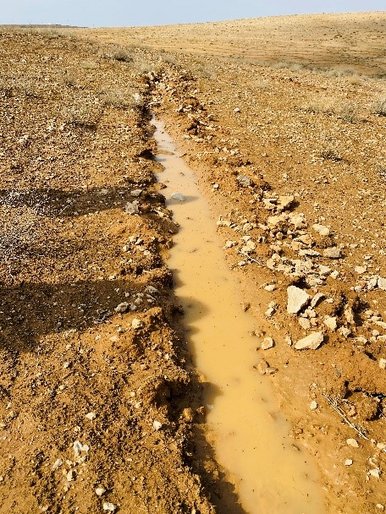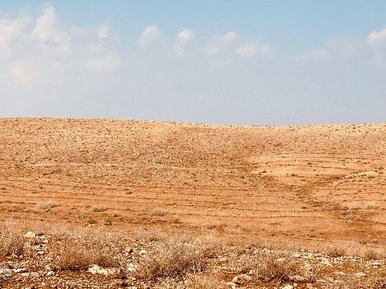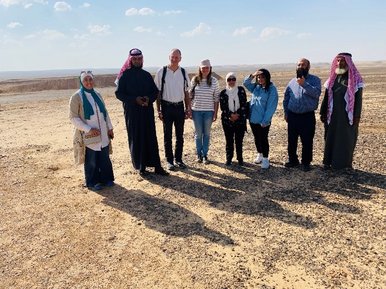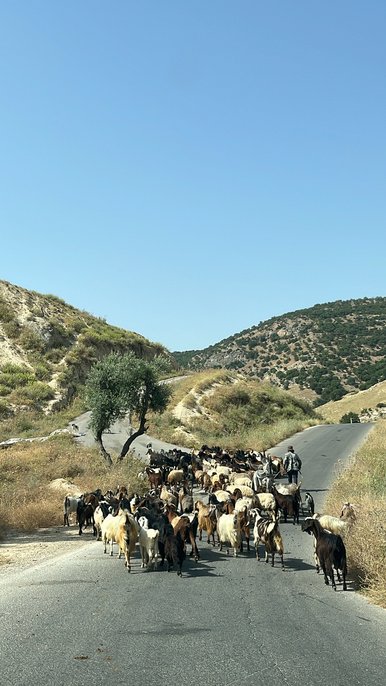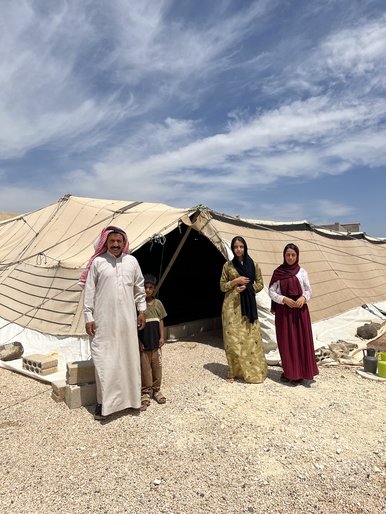Current projects
Climate change poses new challenges for Lusatia. With increasing periods of heat and longer dry spells in summer, landscape development is being significantly affected. This primarily affects agriculture and cycling-related tourism, which is of particular importance due to the attractive themed cycle paths in the region.
Within the project, we are analysing the current landscape and land use in Lusatia with the help of drone images and satellite images. In doing so, we record temperature hotspots and coldspots in order to develop targeted action strategies. In addition to analysing land surface temperatures, agricultural and socio-economic conditions are also taken into account in order to identify practicable land use options for the region.
Another focus is on the economic evaluation of these options. We use surveys and choice experiments to determine the preferences of female farmers and cycle tourists for climate adaptation measures. In addition, their costs are calculated on the basis of the land use options developed. By estimating preferences and costs, targeted adaptation measures can be derived.
In order to promote the Lusatia region, LIL-KliBioTo supports the adaptation of the bioeconomy and cycle tourism to a changing climate through specific recommendations on:
- Agricultural utilisation
- Design of cycle paths adapted to climate change
- Dissemination of the project results with the help of apps
Involved Researchers:
- Charlotte Gerling
- Tobias Nowakowski
Webseite:https://lil-klibioto.zalf.de/de/
Partners:
- Leibniz-Zentrum für Agrarlandschaftsforschung (ZALF) e.V.
- hyperworx Medienproduktionen
Funding:
- BMBF („WIR! – Wandel durch Innovation in der Region)
The project deals with the question of how the consequences of climate change can be mitigated by measures to improve the landscape water balance and the local climate. To this end, spatially explicit proposals for measure implementation for climate-stable land management were developed in the first phase of the project. The selected measures were evaluated in terms of both their cooling effect and their cost effectiveness. In the current 2nd project phase, synergy effects for the conservation of biodiversity and the handling of climate-related adaptation limits will be included in the analysis. The aim is to create a transferable framework for evaluating measures in drought-prone regions.
Involved Researchers:
- Dr. Astrid Sturm
- Dr. Nonka Markova-Nenova
- Johanna Witt
Project Website:
Innovative grassland utilization for sustainable agricultural intensification at the landscape scale
Involved Researchers:
- Dr. Astrid Sturm
- Karmand Kadir
Project duration: 2019-2028
Project website:
Partner:
- Universität zu Köln
- Universität Hohenheim
- Feindt Humboldt Universität Berlin
- Universität Kassel
- Humboldt Universität Berlin
- Brandenburgische Technische Universität Cottbus - Senftenberg
- Justus-Liebig-Universität Gießen
- Agrargesellschaft Emsterland/Brandenburg
- Grünlandzentrum Niedersachsen/Bremen
- Horizont Group GmbH
- Texas Trading GmbH
Funding: German Federal Ministry for Education and Science (BMBF) ("Agrarsysteme der Zukunft")
Co-Design of ecologically and economic efficient policy instruments and measures for the protection of biodiversity and ecosystem services in cultural landscapes
Involved Researchers:
- Nonka Markova-Nenova
- Charlotte Gerling
- Dr. Astrid Sturm
Projectwebsite: https://mloek.geo.tu-dresden.de/index.php/projects/eco2scape/
Partner:
- TU Dresden
- BTU Cottbus-Senftenberg
- Landschaftspflegeverband Nordwestsachsen e.V.
- Nationale Naturlandschaften e.V.
Funding: BMBF (2021 - 2024)
Regional Centre for Sustainable Adaptation to Global Change in the Middle East (SAGE-Centre)
The SAGE-Center works on finding science-based solutions to adapt to climate change in the Middle East. This is based on interdisciplinary research that is relevant for decision-makers in the region. A large focus lies on capacity building and the empowerment of societies. More information on the SAGE-Centre can be found here: https://www.daad.de/en/information-services-for-higher-education-institutions/further-information-on-daad-programmes/sage-centre-middle-east/
At the Chair of Environmental Economics, two PhD students will be working on topics of climate and land use change in the Middle East.
Ahmed Shaqfa
Rangelands in Jordan have a valuable role from an economic, environmental, and cultural point of view. It’s a source for livestock products, carbon sequestration, and biodiversity, and they also serve as catchment areas that receive rainfall and surface water runoff. Rangelands also have a high cultural value for the Bedouin community. Climate change and water scarcity are two major challenges that threaten Jordan’s rangelands. Contour ridges, an on-farm storm water harvesting technique, are a promising adaptation measure in the region. In his PhD, Ahmed Shaqfa will conduct a cost-benefit analysis to assess the socio-economic impacts of using contour ridges as a tool to rehabilitate degraded rangelands in Jordan. Based on this research, in a second step a payments for ecosystem services (PES) scheme will be developed.
Mai Nusir
The management of common pool resources such as rangelands differs between different areas in Jordan. The differences lie, for example, in the management tools, outcomes, local community engagement and feedback. These differences were the inspiration for Mai Nusir’s research project: to investigate the management of common-pool-resources and institutional change that three chosen locations in Jordan went through, and to assign the institutional change to a framework to explain the process and the development of the common-pool-resources management options and policies in these locations.
Involved Researchers:
- Ahmed Shaqfa
- Mai Nusir
- Dr. Charlotte Gerling
- Prof. Dr. Frank Wätzold
